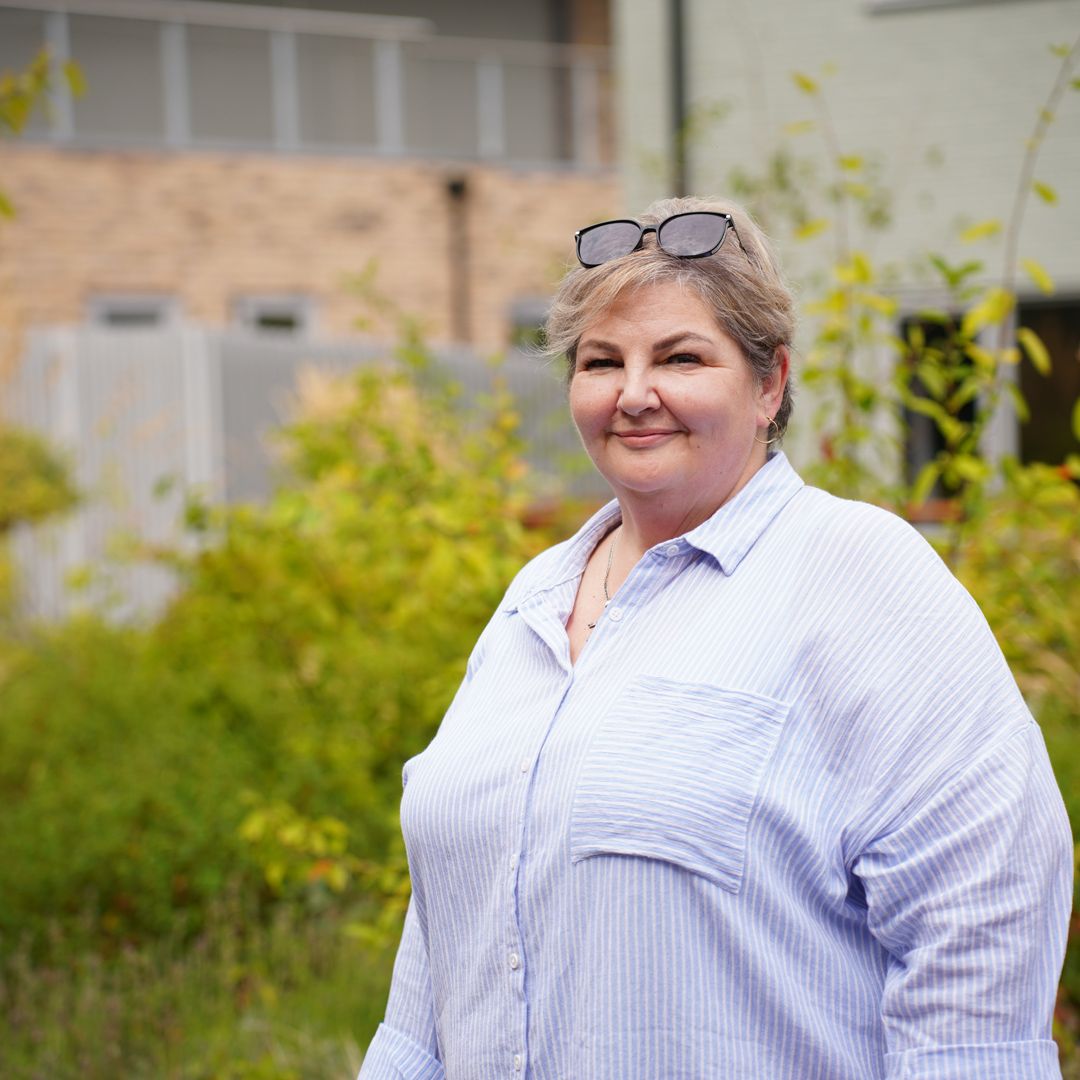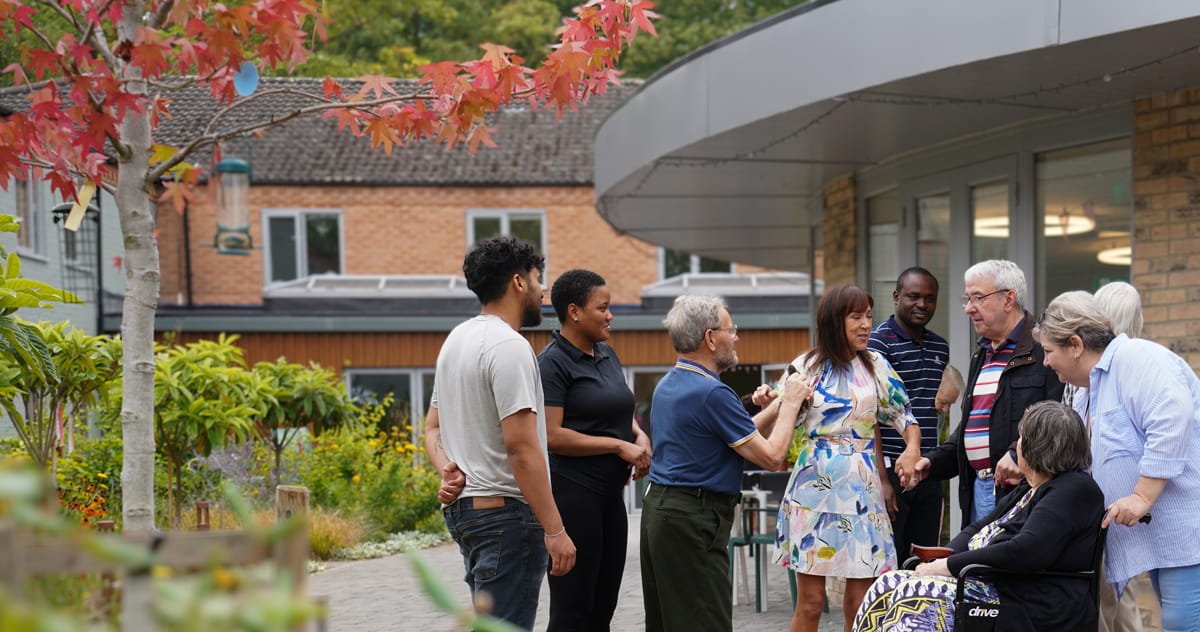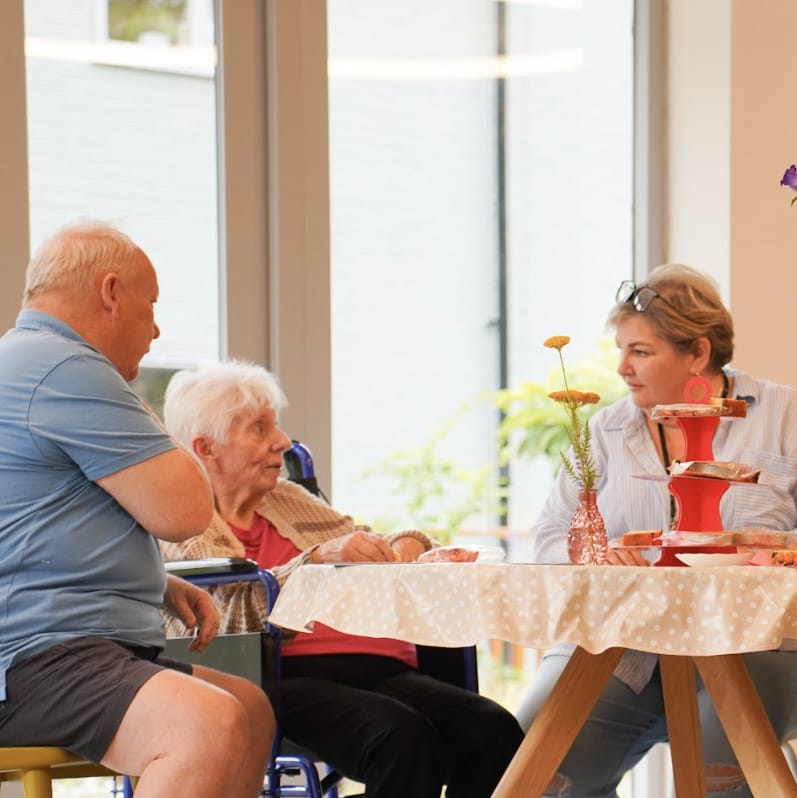Jane's Story: Advice On Living With Dementia In The Family
Jane Hernandez, who started as a cleaner at Church Farm Care nearly 25 years ago, rose through the ranks to forge a career in care, becoming a trainer and is now house leader. She also looks after her 87-year-old mum during the week. Church Farm Care has helped with juggling her shifts, which are now at weekends when relatives can take over looking after her mum.
It’s a challenging situation that would test most people, but mum-of-two Jane, who is also a grandmother, takes it all in her stride. And her experience has put her in the ideal position to understand what relatives of people with dementia are dealing with.
Looking after my mum means that I understand what relatives at our care homes feel - they find it easy to talk to me because I know what they're going through. I recognise the frustrations.

What valuable insights into dementia have you learned through your own experiences?
Looking after my mum means that I understand what relatives at our care homes feel - they find it easy to talk to me because I know what they're going through. I recognise the frustrations.
You never really know how your relative will be - one day everything is nice and the next it can be very difficult as they might think you’re not doing things in their best interests and that you’re trying to take over their life.
What are the early signs of dementia that people need to know?
Dementia affects memory and concentration and can develop over many years. There are little signs, such as them watching TV and saying ‘Oh, I haven’t seen this for a long time’ when they actually watch it every day.
Or they could just forget their address or who has been to visit. A family member or friend might not notice straight away but these small incidents can become more frequent. They might get lost in places they are normally familiar with or repeatedly ask the same questions.
It can be difficult to assess because people get forgetful simply through old age. Or they may have lost a life-long partner and could be suffering from depression - there are similar symptoms.
With dementia, they might forget the identity of people who are close to them that they see every day - they will know it’s their son but they'll forget which one it is, for example.

How important is early diagnosis?
If a relative is experiencing alarm bells about a loved one, it’s very important to get an appointment with a healthcare professional for a diagnosis. There could well be other treatable conditions with similar symptoms, so it’s important to rule these out.
They might need to be persuaded to see a doctor as they could be in a state of denial. My mum, for example, is of the generation that doesn’t want to be any trouble. She’s probably only seen a doctor about ten times in her whole life, so I had to talk her into coming with me so she could be seen.
The GP will ask questions about the person’s short-term memory, which relatives can do at home too if they are having any concerns. Then the doctor might request further tests and a potential assessment.
Any tips for how relatives should treat their loved ones when visiting?
Try not to show that you are upset if your relative doesn’t recognise you. Just go with the flow, be in their bubble with them and don’t be tempted to correct them all the time.
Just be there for them. You have to separate the person from the dementia - they aren’t the person they were before. It’s also important for us as a care home to keep relatives involved in everything that we do.

What skills do you encourage among your colleagues?
In my staff training sessions - I previously completed a year-long diploma in dementia care - I always say to treat people as individuals. Also, allow a person’s frustrations to come out rather than suppressing them otherwise those feelings can build up.
We need to be sensitive, understanding and compassionate and not take tasks like eating and washing away from people, effectively de-skilling them. It’s easy to take over but we want to try and keep their skills going for as long as possible to maintain their independence and dignity. We must treat people the way we would want to be treated.
Do you find your role rewarding?
I really enjoy working with people with dementia and listening to their stories. I get so much pleasure from the job knowing that we are helping people and doing our best towards the end of their lives to make it as liveable and pleasant as possible.
And just sometimes, when you get a little smile or one small bright spot in the day that lifts the spirits, you know you're doing your job properly. You just feel like you've made a difference and it’s all worthwhile.
About Church Farm Care Church Farm Care homes are innovative, research led and multi award-winning. All homes are rated ‘outstanding’ and ‘good’ in all areas by the Care Quality Commission and all are rated as a band five home by Nottinghamshire County Council; the highest rating that can be achieved on the quality of care and service used by the council. Church Farm Care champions a person-centred relationship-focused approach to care which is focused on compassion, patience, kindness, empowerment. Church Farm Care follow the Meaningful Care Matters model.